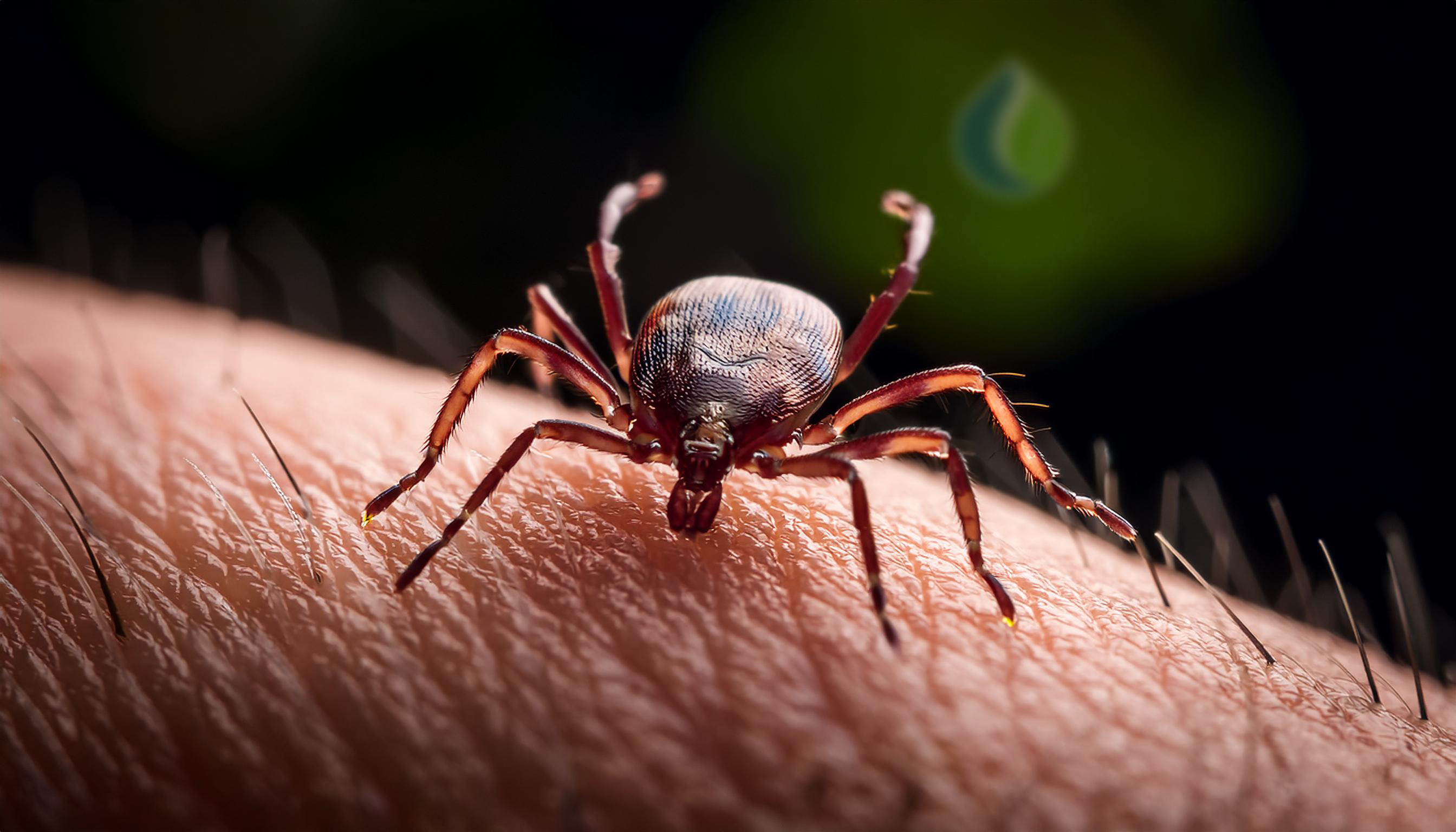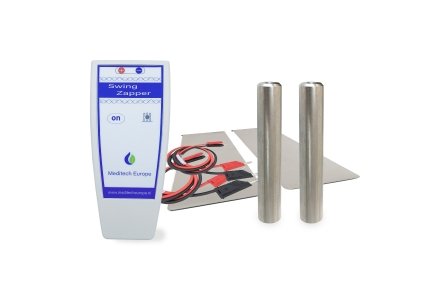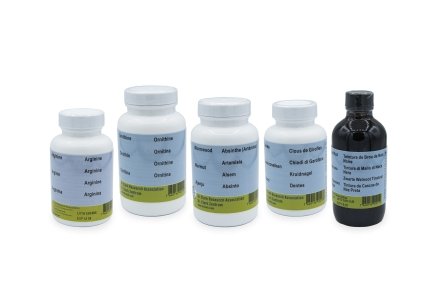
As health advocates, we are aware that biological organisms and systems consisting of cells and cell structures need care and protection for optimal cellular health. Unfortunately, there are parasites that live on or in other organisms and feed at their expense. These parasites can range from microscopic to larger forms such as tapeworms and lice, and they can cause various problems. In this blog, we will take a closer look at this and discuss treatments for parasite control.
What are Parasites
Parasites are organisms that live on or in another biological organism, this is called the host, and feed at the expense of this host. Parasites can be harmful to the health of their host and can lead to various health problems.
We discuss below a number of parasites that can impact biological organisms and systems:
Protozoa: These are single-celled organisms belonging to the Protista kingdom. They are microscopic and can be either free-living or parasitic. Examples are Giardia and Entamoeba that cause infections in the intestines.
Helminths: are a group of parasitic worms that can infect various biological organisms. They belong to different taxonomic groups and can occur in different forms, such as flatworms, roundworms, and tapeworms. Helminths can occur in both the digestive system and other parts of their host's body and are responsible for a number of important diseases worldwide, especially in tropical and subtropical regions.
Ectoparasites: are parasites located on the outside of their host's body. They can include a wide range of organisms, such as lice, ticks and mites. Not only are they a nuisance because of the damage they cause directly, but they can also transmit diseases through pathogens such as viruses and bacteria.
How do Biological Systems Become Infected with Parasites?
Parasites can enter the body and affect biological systems in a variety of ways. Their influence can range from mild discomfort to serious disease. Consider the following ways:
Food and water: Consuming contaminated food or water can lead to infections with intestinal parasites such as Giardia and Cryptosporidium.
Insect bites: Mosquitoes, ticks and other insects can transmit parasitic diseases through bites.
Direct contact: Skin-to-skin contact or contact with contaminated surfaces can lead to the transmission of skin diseases caused by parasites such as scabies.
Direct penetration through the skin: Some parasites can actively penetrate the skin.
General Symptoms
The following general symptoms can occur as a result of parasitic infections on cells and tissues:
Diarrhea
Abdominal pain
Nausea and vomiting
Weight loss
Fatigue
Fever
Itching and rash
The Influence of Parasites on Biological Systems
Parasites can affect various biological systems of biological organisms, including the immune, digestive, and nervous systems. The specific effects depend on the type of parasite, the site of infection, and the severity of the infection. The main influences on these systems are described below:
Immune system: Parasites activate the immune system by being recognized as foreign invaders. This triggers an immune response that mobilizes various cells and molecules to fight the infection. Some parasites can modulate immune responses to promote their survival. They can secrete immune-suppressing substances or redirect the immune response to avoid detection. Prolonged infections can cause chronic inflammation, which can lead to tissue damage and fibrosis. Excessive immune responses can also lead to tissue damage, such as in severe forms of malaria.
Digestive system: Intestinal parasites such as tapeworms, roundworms, and protozoa can absorb nutrients from the intestines or interfere with their absorption, leading to malnutrition and deficiencies in essential vitamins and minerals. Some parasites damage the intestinal wall, which can lead to diarrhea, blood loss, and malabsorption. For example, Giardia can reduce the absorptive capacity of the intestine, resulting in weight loss and nutritional deficiencies. Larger parasites such as Ascaris lumbricoides (roundworms) can cause physical obstructions in the intestine, leading to severe abdominal pain, vomiting, and intestinal obstruction. Parasites can cause local inflammation in the intestines, which can result in enteritis (inflammation of the intestines) and colitis. This can cause symptoms such as abdominal pain, cramps, and changes in bowel movements.
Nervous system: Some parasites can infect the central nervous system, leading to severe neurological symptoms. These include epilepsy, headaches, and neurological abnormalities.
Toxoplasma gondii can infect brain tissue, especially in immunocompromised individuals, leading to encephalitis (brain inflammation) and other neurological disorders.
Some parasites produce neurotoxins that can disrupt nerve functions. For example, the larvae of the parasitic worm Dracunculus medinensis can damage nerves, causing pain and inflammation.
Diagnosis and Traditional Treatment Methods
The impact of parasites on biological systems can lead to various clinical manifestations, depending on the severity and duration of the infection. Treatment is essential to prevent further damage and may include antiparasitic drugs, supportive therapies, and sometimes surgical intervention.
Preventive measures such as improved sanitation and hygiene are also important to prevent parasitic infections and minimize their impact on host health.
Diagnosis
The most commonly used diagnostic methods for detecting parasites often depend on the type of parasite and the clinical situation. In general, the following methods are most commonly used:
Fecal examination: This is the most common method for detecting intestinal parasites. It is often used for parasites such as pinworms (Enterobius vermicularis), roundworms, hookworms and giardia. Multiple samples may be needed because parasites are not always present in every stool.
Microscopic Examination: This involves examining stool samples or other body fluids such as blood under a microscope to identify parasites or their eggs. It is often used for the initial evaluation of parasitic infections.
Serological Tests: These are often used to diagnose parasites for which an immune response is produced, such as Toxoplasma gondii, Leishmania and malaria. Serologic tests can help identify infections that are difficult to detect by other methods.
Clinical Evaluation: Although not a diagnostic test per se, analyzing symptoms and medical history is crucial in making a diagnosis. This helps determine which diagnostic tests are needed and can also help identify appropriate treatment.
Traditional Treatment
Treatment of parasitic infections depends on the type of parasite and the severity of the infection. Some common treatment methods include:
Killing the parasite using antiparasitic drugs to treat the infection. These medications are prescribed by your doctor after a diagnosis has been made. For severe or persistent symptoms, it is important to consult a doctor for proper diagnosis and treatment.
With some parasitic skin conditions, it is important to take proper hygienic measures, such as washing clothes and bedding.
Limitations of Conventional Treatments
Resistance development: Parasites can develop resistance to commonly used antiparasitic agents. This can lead to ineffective treatments and the need for alternative therapies.
Limited efficacy in certain parasites: Some antiparasitic drugs are not effective against certain life stages of the parasite or against all species of a parasite.
Access and availability: In some parts of the world, there is limited access to effective medication because of cost, distribution problems, or inadequate health infrastructure.
Incomplete treatment of complex infections: Some parasitic infections have a complex life cycle with multiple hosts and stages, making it difficult to treat all stages with a single medication.
In addition, antiparasitic drugs can cause side effects such as nausea, diarrhea and abdominal pain in some cases. Also, some patients may experience allergic reactions to antiparasitic medications. And some medications can stress the liver and should be used with caution in people with liver problems.
Innovative Technologies
Some people opt for complementary or alternative approaches.
These include Hulda Clark's Swing Zapper, which is told can kill parasites in biological organisms and systems through electrical pulses in a certain frequency range.
Swing Zappers
The Swing Zapper is a device that delivers mild electrical pulses within a certain set frequency range. These variable frequencies ensure that harmful microorganisms cannot resist them or become immune to treatment.
Exposure to the mild electrical pulses and frequency patterns can eliminate the harmful parasites and microorganisms. These microorganisms can disrupt essential cellular processes and affect overall health. By using the Swing Zapper, these bothersome microorganisms are effectively removed, promoting cellular health and cellular vitality of biological systems.
Health Benefits of Parasite Control
Effective parasite control contributes to the overall health of biological systems in several ways. Here are some key ways this happens:
Effective parasite control reduces the burden of chronic infections. Chronic parasitic infections can continually activate and deplete the immune system, leading to decreased resistance to other infections and diseases.
Effective treatment prevents secondary infections that can occur due to immune suppression caused by parasites. This is especially important for people with weakened immune systems.
Parasites can cause significant damage to organs. Timely and effective control prevents this damage and preserves the functionality of vital organs. Timely elimination of parasites allows organs and tissues to recover, leading to restoration of normal functions.
Many parasites compete with their hosts for nutrients or cause absorption disorders, leading to malnutrition and growth disorders. Effective treatment promotes better nutrition and growth, especially in children.
In addition to timely parasite control, a holistic approach to maintaining and improving cellular health is essential because it takes into account the complexity and interconnectedness of biological systems in the body. Rather than focusing on individual symptoms or diseases, a holistic approach recognizes that health is the result of a balance of various factors, including nutrition, lifestyle, environmental influences, mental health, and genetics.
Therefore, to support a healthy biological system, it is important to focus on prevention, optimal nutrition, mental and emotional health, and avoidance of harmful environmental influences. This holistic approach can help promote overall health and well-being. This results in improved cellular functions, increased resistance to disease, and an improved quality of life.
Conclusion
The impact of parasites on biological systems can be significant, ranging from mild discomfort to serious health problems. Traditional treatments, while effective, sometimes encounter limitations such as resistance and side effects. In response, Meditech Europe offers innovative technologies such as the Swing Zapper. This device uses mild electrical pulses within a certain established frequency range to combat parasites, offering a possible complementary or alternative approach to promoting cellular health and overall vitality. However, for severe or persistent symptoms, it is important to consult a physician for proper diagnosis and treatment.
For more information and questions about parasites and possible complementary or alternative approaches, please feel free to contact us at info@meditecheurope.nl or +31527 292 331. We will be happy to provide you with any information.






